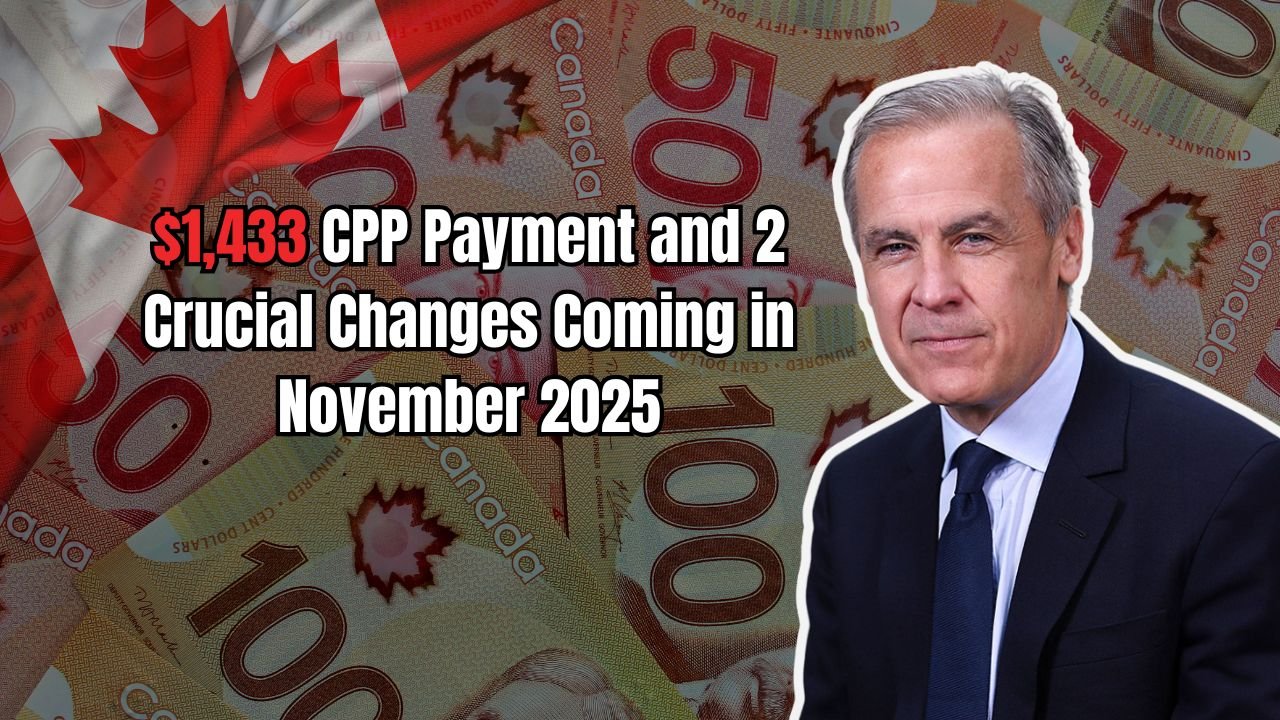The Canada Pension Plan (CPP) continues to be a vital source of income for retired Canadians. In 2025, there are significant updates that affect how much seniors receive as well as how contributions are handled. These changes aim to address rising costs of living, ensure long-term system sustainability and offer clear information for those planning retirement.
New Payment Amounts for 2025
The Canadian government has set the average monthly CPP payment at CAD $1,433 as of November 2025. This adjustment reflects inflation and increased contributions from working Canadians. Seniors who have made consistent contributions—especially those with 39 years or more of full contributions—stand to benefit the most. With this new rate, retirees can better withstand economic pressures such as increased healthcare and living expenses.
Major Changes Coming in November 2025
Two primary modifications take effect later in 2025:
- The maximum monthly CPP benefit has been raised to CAD $1,433, giving more generous support for eligible seniors.
- The contribution ceiling for workers has also been increased, reinforcing the pension plan’s long-term sustainability.
These updates form part of the government’s strategy to bolster income security for older Canadians. Retirees should check their benefit statements and eligibility status so they receive the full advantage of the updated rates.
At-a-Glance: 2025 CPP Updates
| Detail | Updated 2025 Information |
|---|---|
| Average Monthly Payment | CAD $1,433 |
| Maximum Annual Pension | CAD $17,196¹ |
| Contribution Rate (Employees) | 5.95% for base earnings – plus incremental tiers for higher incomes |
| Effective Payment Month | November 2025 |
| Eligible Age Range | 60 to 70 years old |
| Administered By | Service Canada |
¹Note: Maximum annual pension derived by multiplying monthly maximum by 12.
Eligibility Rules for CPP in 2025
To qualify for the updated CPP payment of CAD $1,433/month, individuals must:
- Have made contributions into CPP during their working years.
- Be at least 60 years of age (and up to age 70 for delayed claim benefits).
- Those who defer claiming their pension past age 65 can receive up to about 42% more each month.
The 2025 policy changes also ensure that part-time and self-employed workers who have made sufficient contributions remain eligible. Retirees should log into their “My Service Canada Account” to check payment dates and benefit calculations ahead of the November 2025 rollout.
Additional CPP-Related Benefits in 2025
Beyond the standard retirement pension, CPP offers other benefits, including:
- Disability support pension: For contributors who become disabled.
- Survivor’s pension: For dependents of deceased contributors.
- Post-retirement benefits: For workers who continue contributing after beginning to receive CPP.
Compared with previous years, these additional benefits have also seen enhancements and eligibility expansions, reflecting the broader commitment to protect older and vulnerable Canadians.
Conclusion
The 2025 updates to the Canada Pension Plan mark a meaningful step forward in supporting retirees. With the average monthly payment set at CAD $1,433, increased contribution ceilings, and broadened eligibility rules—including for part-time and self-employed workers—older Canadians are better positioned to maintain financial stability. It’s important for prospective retirees to review their CPP status, ensure contributions are up-to-date and plan their claim timing to make the most of these changes. With the right preparation, CPP will continue to serve as a dependable foundation for retirement income in Canada.
FAQs
What is the age range when I can start claiming CPP in 2025?
You can begin claiming CPP as early as age 60, or choose to delay up to age 70. Delaying increases your monthly payment.
How much do I need to contribute to receive the maximum benefit?
To approach the maximum CPP benefit, you must have made full contributions on maximum pensionable earnings for about 39+ years. The 2025 maximum earnings threshold is CAD $71,300.
Are the CPP payments indexed for inflation?
Yes. CPP payments include cost-of-living adjustments so that retirees’ purchasing power remains protected over time.


